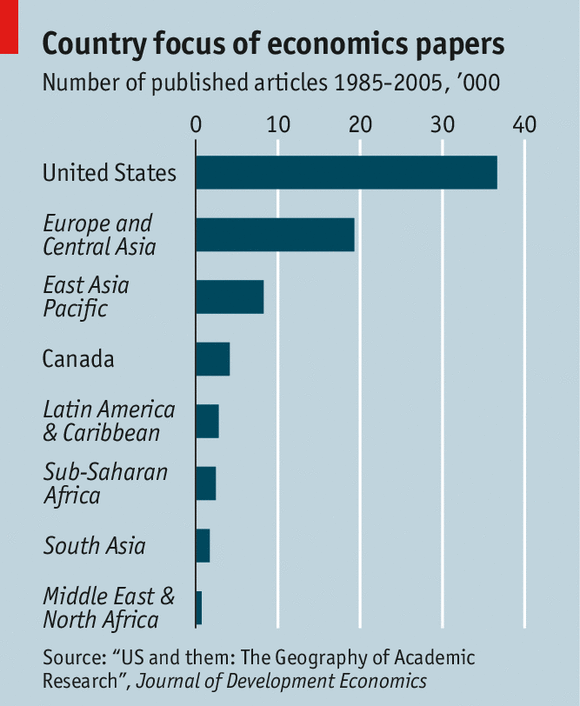
Academic research
Economics is highly parochial
DO ACADEMIC economists focus too much on America? Yes: a sample of 76,000 papers published between 1985 and 2005 shows that econo-nerds are infatuated with the “land of the free”.

There were more papers focused on the United States than on Europe, Asia, Latin America, the Middle East and Africa combined (see chart). And for the world’s top-five economics journals—where publication of a paper can push a young researcher towards a full professorship—the imbalance is yet more marked. Even accounting for the fact that lots of economic research (and often the best) comes from American universities, the bias persists.
The world’s poorest countries are effectively ignored by the profession. From 1985 to 2005 Burundi was the subject of just four papers. The American Economic Review, the holy grail for many academics, published one paper on India, by some measures the world’s third-largest economy, every two years.
There are troves of good data on the American economy: that makes it easier for researchers to focus on the country. But academic politics also plays a role in explaining the bias. There may be great intellectual kudos in beating the competition to solve a highly complex conundrum concerning the American economy, but relatively little in understanding the nuts and bolts of a less developed country. Scholarly recognition matters for job prospects and research funding.
But the world’s poorest countries would benefit from having more economists poking around. With more published research, it would be easier for those countries to base policies on hard evidence, rather than on politicians’ whims. Economists ought to be bolder in venturing outside their comfort zone.
No comments:
Post a Comment